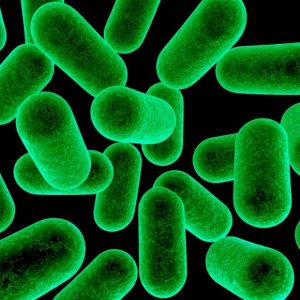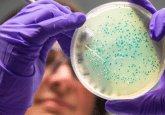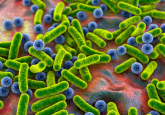Antibiotic resistance in the human gut microbiome

Over 6000 antibiotic resistance genes have been identified in the bacteria that comprise the human gut microbiome.

There are millions of bacteria in the human gut, many of which are sensitive to antibiotics – you may have been recommended taking probiotics alongside antibiotics as it is thought they can prevent the breakdown of the gut microbiome to some extent.
However, there is still some knowledge lacking when it comes to understanding the antibiotic-resistance-causing genes in gut bacteria. A team of researchers has recently developed a novel method to identify these genes. By comparison of the 3D structures of known antibiotic resistant enzymes with proteins that are produced by gut bacteria, the researchers were able to identify relevant genes.
The method was applied to a database of millions of genes from the gut, enabling them to identify over 6000 antibiotic resistance genes that are very different from previously identified genes in pathogenic bacteria.
“Most gut bacteria live in a harmless relationship with the human host. However, the gut is also home to bacteria that can cause infections in hospitalized patients,” commented Willem van Schaik (Institute of Microbiology and Infection at the University of Birmingham, UK).
“Unfortunately, these bacteria are becoming increasingly resistant to antibiotics and we need to understand the processes that contribute to this development. By comparing the structures of known antibiotic resistance genes in the human gut, we found thousands of new antibiotic resistance genes in the human gut, highlighting the immense diversity of antibiotic resistance genes in this environment.”
The researchers stipulate that many of these genes will not be a threat to human health as they appear to be from bacteria that are harmless in the human host. However, they do warn that the continuing use of antibiotics may lead to the transfer of such genes into pathogenic bacteria.





